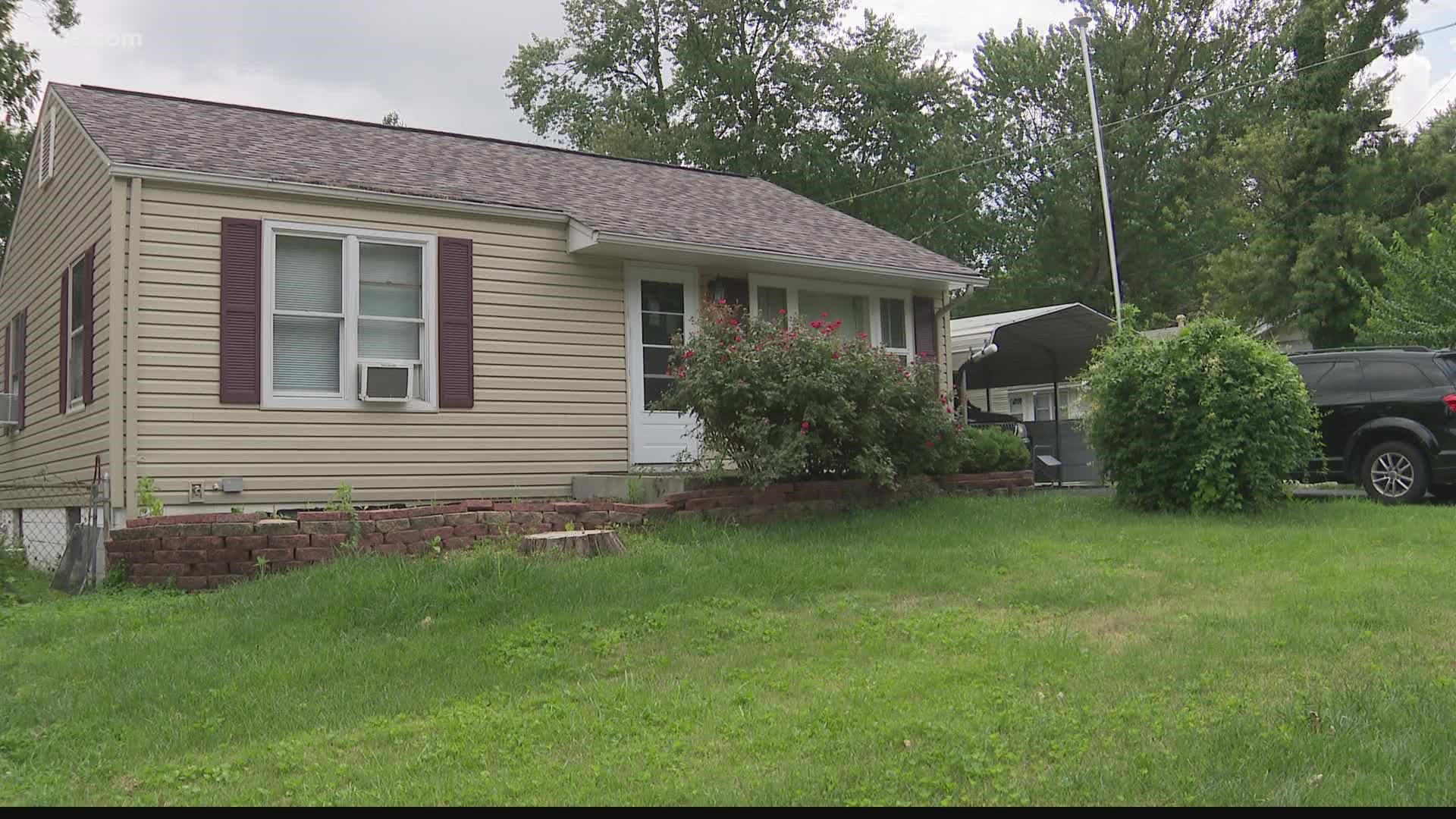ST. LOUIS — The end of the CDC’s eviction moratorium means that pandemic-affected households across the country face the possibility of losing their homes. According to the most recent data from the US Census Bureau’s Household Pulse survey, roughly 47,000 Missourians fear they could lose their housing in the next two months.
A $46 billion rental aid program funded through the CARES Act could help many of those families, but experts say Missouri has been one of the slowest states in the country to distribute federal dollars to people who applied.
Detrecia Beach in north St. Louis County is awaiting the piece of mail that will let her family stay in their home.
“I don't have anywhere to go. You know, I wouldn't know what to do. Just sleep in my truck?” said Beach.
Like approximately 44,000 Missourians, Beach is waiting for Emergency Rental Assistance funds through her county. The US Treasury designated $408 million for Missouri in ERA’s first round.
“It's like we're waiting and waiting and waiting,” said Beach. “Why is it just sitting and what's taking so long?”
Beach suffered a stroke during the pandemic. She applied for ERA assistance through a local non-profit in November 2020 and received no response all the way through August, when she re-applied through St. Louis County.
St. Louis City and St. Louis County funds for renters
Monica, a home healthcare worker who did not wish to use her full name, waited even longer.
“What's taking so long? Will I be approved for it?” she said.
Of the $29 million that St. Louis County received since last year as part of the ERA 1 funds, about a third of it has been paid out to renters who applied for it.
St. Louis City received $9 million during ERA 1, and so far, just over $2 million has gone to St. Louis City applicants.
Barriers for many
Melissa Pashia with the St. Louis Equal Opportunity Housing Council explained that complex application processes add to the delays.
“A lot of people don't have email addresses, especially seniors,” said Pashia. She added that at-risk populations “may not consistently have a phone that they can be reached on, especially if they're choosing between which utilities they are going to pay. Oftentimes I'm seeing that a cell phone is the first bill that people skip.”
The technological barriers have also been on the minds of St. Louis County’s program administrators. Yusef Scoggins, director of the Office of Family and Community Services in St. Louis County’s Department of Human Services, told the I-Team, “What is often an issue is that some may have difficulty navigating the system and trying to understand what information they may need to submit.”
Still, Scoggins added, applications are being processed and money is being disbursed more rapidly.
“For those who have applied within the last 30 days, the turnaround time for those applications is approximately 12 days,” said Scoggins. “That is one of the fastest in the state.”
Beach’s latest application is still pending. The County clarified that they are waiting on additional information from her, which Beach didn’t know she needed to provide.
“I'm down right now, but I know I'm going to, you know, have faith in God, because I had a stroke and I'm still here,” she said.
Monica finally received her funds late last month.
Next steps for those waiting
St. Louis City encourages anyone who applied for rental assistance to call 2-1-1 to check the status of their application. New applicants can attend an Emergency Rental Assistance Clinic to get assistance in person. Information about applying for assistance in the city or attending clinics is available on the city’s website.
St. Louis County operates a dedicated website for applying for ERA funds. It includes a tool to check the status of an application. The county directs applicants to call (314) 806-0910 with their questions.
Landlords can apply for assistance on behalf of their tenants through the Missouri State Assistance for Housing Relief website. Questions about SAFHR applications can be asked by phone at 833-541-1599.

